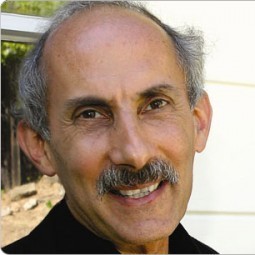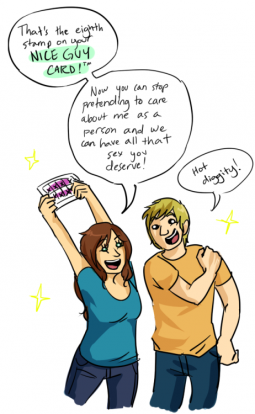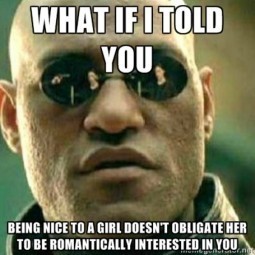Bodhipaksa's Blog, page 3
March 28, 2015
ZenFriend meditation app on Android
 Last year I gave a good review to a meditation timer app for the iPhone called ZenFriend. It’s a very attractive app with a clean and simply layout. I much prefer the look compared to the Insight Timer, which is the other main application I use.
Last year I gave a good review to a meditation timer app for the iPhone called ZenFriend. It’s a very attractive app with a clean and simply layout. I much prefer the look compared to the Insight Timer, which is the other main application I use.
I just heard today that the app is now also available for Android devices through the Google Play Store. It’s currently free. I’d recommend heading over and downloading it.
The app not only allows you to time your sessions, but also includes meditation instructions from a variety of teachers, and it includes a meditation log and statistics to help you track and maintain … Read more »
Related posts:
ZenFriend: A new meditation timer for iPhone
Hit the ground sitting! Day 7 of our 100 Day Meditation Challenge
Meet Wildmind’s iPhone app!
YARPP powered by AdBistroPowered by

Best Dharma quote ever!
 If you can sit quietly after difficult news;
If you can sit quietly after difficult news;
if in financial downturns you remain perfectly calm;
if you can see your neighbors travel to fantastic places without a twinge of jealousy;
if you can happily eat whatever is put on your plate;
if you can fall asleep after a day of running around without a drink or a pill;
if you can always find contentment just where you are:
you are probably a dog.
– Jack Kornfield
Thank you to Tim Brownson for sharing this, in a paraphrased form, on his blog.
The comes from Jack’s book, “A Lamp in the Darkness: Illuminating the Path Through Difficult Times.”
Related posts:
Don’t Hesitate: Meditate
Fake Buddha Quote: “Each morning we are born again. What we do today is what matters most.”
Fake Buddha Quote: “When words are both true and kind, they can change our world.”
YARPP powered by AdBistroPowered by

On having lovingkindness for hackers
 Two days ago I got an email message from a friend, saying that Wildmind had been hacked. Uh, oh. It was about 12:25PM, and the timing sucked, since I was just meeting with a couple of friends who were helping me move the last of my stuff out of the house I’ve been living in for the last nine years. As soon as that was over, it would be time to pick up my kids from school, feed them, and then take them back to school for an ice cream social and art show.
Two days ago I got an email message from a friend, saying that Wildmind had been hacked. Uh, oh. It was about 12:25PM, and the timing sucked, since I was just meeting with a couple of friends who were helping me move the last of my stuff out of the house I’ve been living in for the last nine years. As soon as that was over, it would be time to pick up my kids from school, feed them, and then take them back to school for an ice cream social and art show.
In the email my friend had sent me a screen shot, showing a screed criticizing Israel … Read more »
Related posts:
Get started with “100 Days of Lovingkindness”
Gideon Bible Distribution in School Struck Down
Room to Breathe: The official trailer
YARPP powered by AdBistroPowered by

Be kind to everyone, but trust only those who deserve it
 Recently someone asked me what she should do if she couldn’t trust a person she was being kind to. In the past she’d tried to be compassionate to a roommate she didn’t trust, and had even felt herself to be in danger. She didn’t say what the exact circumstances were, but it sounded scary.
Recently someone asked me what she should do if she couldn’t trust a person she was being kind to. In the past she’d tried to be compassionate to a roommate she didn’t trust, and had even felt herself to be in danger. She didn’t say what the exact circumstances were, but it sounded scary.
Being kind to someone means treating them as a feeling human being who, like us, has a deep-rooted desire to be happy and an equally deep-rooted desire not to suffer. It means empathizing with the fact that happiness is elusive and that suffering is all too common. Bearing these thoughts in mind makes it harder to … Read more »
Related posts:
The Urban Retreat, Day 6: The tender heart of lovingkindness
Looking into the heart’s depths (Day 92)
Day 11 of Wildmind’s 100 Day Meditation Challenge
YARPP powered by AdBistroPowered by

Relating to your inner doom-monger
 I just wanted to share a couple of things I’ve been doing recently to deal with the part of my mind that likes to worry about things that might go wrong.
I just wanted to share a couple of things I’ve been doing recently to deal with the part of my mind that likes to worry about things that might go wrong.
A couple of weeks ago I had a growth removed from inside my ear, and a week later the pathology report came back, saying that the lump had been cancer. It’s not very pleasant to hear that you’ve had cancer, and it’s also unpleasant knowing you’d had to leave it untreated for six months because you couldn’t afford health insurance. Anyway, that unpleasantness prompted the worrying part of my mind to go into overdrive. What if the surgeons hadn’t … Read more »
Related posts:
Health “care” in the US
Vegetarians ‘avoid more cancers’
Twitter Updates for 2010-07-02
YARPP powered by AdBistroPowered by

Which positive emotion has the most “awesome” health benefits?
 The New York Times magazine this weekend will have an interesting article in its health column, The Well, about research into the health benefits of positive emotions.
The New York Times magazine this weekend will have an interesting article in its health column, The Well, about research into the health benefits of positive emotions.
The researchers were interested in looking at levels of a compound called interleukin-6, which is associated with general inflammation in the body. Low levels of interleukin-6 correspond to good health.
In the study, students were asked:
about their normal dispositions and the extent to which they had recently felt seven specific emotions: awe, amusement, compassion, contentment, joy, love and pride. The students also provided a saliva sample. While happy moods were collectively still associated with low IL-6 levels, the strongest correlation was
Related posts:
The end of health insurance companies?
"Reframing" may be bad for your health
An atlas of human emotion
YARPP powered by AdBistroPowered by

February 26, 2015
New beginnings
 There’s a 50/50 chance that you made some New Year resolutions a couple of months ago; there’s an even better chance that you’ve already abandoned them. Or perhaps you’re one of the people who never makes New Year resolutions because you’ve learned through experience that they’re forgotten almost as soon as they’re created.
There’s a 50/50 chance that you made some New Year resolutions a couple of months ago; there’s an even better chance that you’ve already abandoned them. Or perhaps you’re one of the people who never makes New Year resolutions because you’ve learned through experience that they’re forgotten almost as soon as they’re created.
Whether we make resolutions or not, we see each new year as an opportunity for new beginnings: not just new years, but new months, new weeks, and new days. Our lives are full of new beginnings. But the most significant new beginnings take place at a much finer scale.
When we meditate, for example, we’re forever catching the mind having gone off and become distracted. We find, for example, that we’ve been mulling over some old hurt, or worrying about some upcoming event, or telling ourselves stories about how we think other people feel about us.
Those moments in which we’ve realized that the mind has become distracted are important new beginnings. Each time we notice that we’ve been caught up in a spiritually unprofitable train of thought, we have a crucial opportunity to let go of it, to reconnect with our present moment experience, to start over.
Sometimes there are so many of these new beginnings that it seems like we’re making little progress. But each time we let go of an unskillful train of thought, returning mindfully and compassionately to our present moment experience, we’re changing who we are. We’re changing our habits, weakening unskillful patterns and strengthening skillful ones. We’re even, at a cellular level, rewiring the brain. Each new beginning may not change us very much, but, as the Buddha said, “Drop by drop, a water pot fills.”
An ongoing commitment to moment to moment change such as this is more powerful than any number of New Year resolutions, precisely because they involve such small steps. We can’t climb a mountain in one bound — thousands of small steps over time are what’s needed.
Sometimes we might feel that our practice is repetitive. You realize you’re distracted, let go and return to the breathing, realize you’re distracted and return to the breathing. You breathe in, breathe out, breathe in, breathe out, repeat. But in fact each experience we have is a new beginning. No two breaths are the same.
Try noticing your next in-breath. See how it comes into existence, is present in your experience, and then comes to an end. Try that again with the next out-breath. Now follow each in-breath and out-breathe with an awareness that you’ll meet this breath only once in your entire existence. Follow the whole cycle of your breathing: beginnings and endings, endings and beginnings. See how precious each breath, each moment, is?
Now as you observe your in-breaths and out-breaths coming into existence and passing away, notice how each breath is composed of a series of moments. There’s this moment then this moment then this moment — no two the same, and none ever returning. There’s just this endless series of new beginnings and new endings, intersecting in time, each one precious and deserving of our full attention.
Related posts:
Some of your “distractions” are not distractions
Energize, Inspire, Enjoy
Relax, rest, reveal
Related posts brought to you by Yet Another Related Posts Plugin.
February 5, 2015
No more (Buddhist) Mr. Nice Guy!
 Recently Euan, whom I don’t know, wrote a comment expressing his dismay at a girl turning him down because he was “too nice.” Here’s what he wrote:
Recently Euan, whom I don’t know, wrote a comment expressing his dismay at a girl turning him down because he was “too nice.” Here’s what he wrote:
I only started meditating in December 2014 and was seeing this girl for a while, we went on a couple of dates, the first went well and the second went ok. We continued messaging each other but she seemed less keen, then today she told me she felt we didn’t click and didn’t want to meet again. She said I paid her too many compliments and was too nice. I’m just so angry because I felt like she was leading me on and we had been speaking for at least two months as I first met her in December but I went home to university and so didn’t see her again until 2 weeks ago where we had the two dates and I thought things seemed to be going well. I just want to know what I’m supposed to think I guess. From what I’ve learned for my short period of meditation is that we should love each other, but when someone tells me they don’t want a relationship because I’m “too nice” it makes me question what I’m doing. Like should I stop being nice to girls I want potential relationships with, and how am I supposed to not get angry at her for me being too nice. What is so wrong with the world that people don’t like being treated nicely, it perplexes me.
Sorry if this doesn’t read smoothly, I’m writing this immediately after I found out and my almost immediate reaction was to question how I am supposed to think like a Buddhist when bad things happen to me for being too nice.
Euan’s comment raised questions that I thought are worth exploring in a blog post.
Euan’s experience is not unique. I’ve been there myself in the past, and when I was young I found myself astonished and sometimes angry at the way some women I’ve been interested in gravitated to men who seemed to me to be jerks. And although my anger never turned into a general hatred of women, this evidently happens with some men. But I still had a lot to learn.
So I want to talk about “being nice,” from the point of view of a man who’s realized that “being nice” is not as “nice” as “nice men” like to think it is. I’m not advocating being unkind, and certainly not advocating ill will or hatred. I’d like to talk about how “being nice” is not actually kind, is a form of manipulation, and is not, in most cases, what women need or want. And I’m sorry, Euan, but some of this may be hard to read. I don’t mean to be unkind or to hurt your feelings, but instead want to act as a kalyana mitta (spiritual friend) who points out things we need to know but may not want to know.
What’s a “nice guy”? A “nice guy” is a man who thinks that the way into a girl’s heart (and bed) is by being agreeable and flattering. Here are a few characteristics of “nice guys,” drawn from a Wikihow article:
They offer to do things for a girl they hardly know that they wouldn’t normally do for just anybody else they know.
They avoid conflict by withholding their opinions or even become agreeable with her when they don’t actually agree.
They try to fix and take care of her problems, they are drawn to trying to help.
They try to hide their perceived flaws and mistakes.
They are always looking for the “right” way to do things.
They have difficulty making their needs a priority.
They are often emotionally dependent on their partner.
The psychology of “nice guys” has been written about a lot. Here’s a great analysis of the whole phenomenon from Geek Feminism Wiki.
Being a “nice guy” is a strategy. It’s not who someone fundamentally is, although “nice guys” are very conscious of and attached to their identity (self view) as “nice guys.”
 Copyright, Callmekatto.The purpose of the strategy, as I’ve said, is to attract and keep a woman. A cartoon by Callmekitto about “nice guys” shows a woman jubilantly holding up a card, similar to one of those “Buy ten cups of coffee and get one free” cards. She’s saying to the young man beside her, “That’s the eight stamp on your Nice Guy Card! Now you can stop pretending to care about me as a person and we can have all that sex you deserve!”
Copyright, Callmekatto.The purpose of the strategy, as I’ve said, is to attract and keep a woman. A cartoon by Callmekitto about “nice guys” shows a woman jubilantly holding up a card, similar to one of those “Buy ten cups of coffee and get one free” cards. She’s saying to the young man beside her, “That’s the eight stamp on your Nice Guy Card! Now you can stop pretending to care about me as a person and we can have all that sex you deserve!”
The cartoon is brutally frank, but it’s making the point that acting as a “nice guy” assumes that relationships are a form of transaction: I’ll pretend to be the kind of person I think you want, and then you’ll give me sex and approval.
As the cartoon indicates, the man who is playing at being a “nice guy” isn’t actually relating to the woman as a full human being. He’s not being himself, and may even have lost touch with who he is. He doesn’t want to express his needs and won’t challenge his intended partner in any way because he thinks that risks pushing her away. In fact the opposite is the case. Few women want a partner who doesn’t express himself and who avoids conflict. A conflict-averse partner is neither going to stand up for you not stand up to you.
The “nice guy” is far from practicing metta, or kindness. Metta is based on empathy (anukampa), which is an awareness of the other person as a person — as a feeling being who has needs. In fact the “nice guy” role is based on craving. You desperately want something (sex, companionship, approval, the status of “being in a relationship”) and you go through the moves that you think will get you that thing. But there’s no actual awareness of the other person, which is unattractive, and so as a “nice guy” you’re constantly finding that you don’t get what you want. In fact it’s not just that you want the things I’ve mentioned: you deserve them. After all, you’ve given the endless compliments, you’ve refrained from expressing what you really want in just about any situation (“No, any movie you choose is fine with me!”), you’ve studiously avoided expressing any needs (“No, it’s not a problem that you stood me up”). You’ve been nice. You’ve cranked the handle on the machine, and how it’s time for your reward!
When the reward doesn’t come the first few times, you might be depressed. But then you get angry — but not just at the girls who rejected you, because you start to realize that almost no girl is going to give you what you deserve. And you do, you think, deserve the sex and the love you want, because you’re not even conscious that “nice guy” is a role you’re playing, and you think it’s who you are. So you both want and hate women, or “bitches,” as you may think of them. As another cartoon (actually it’s more of a “meme”) says, “Women never date nice guys like me. I hate those bitches.” Frustrated craving turns to hatred.
I want to re-emphasize that the “nice guy” is a role that men play. It’s not who they fundamentally are. So in criticizing the actions of “nice guys,” I’m not saying that there’s something irretrievably flawed about them. Just that they need to so some work in becoming more self-aware, braver, more honest, and more genuinely empathetic and loving.
The Wikihow post I linked to above has some advice for stepping out of the “nice guy” role, but I’ll say just a few words about developing the qualities I just mentioned.
Become more self-aware: Realize when you’re acting out of craving and expectation. Let go of the label of “nice guy.” Seriously, never refer to yourself or think of yourself as a “nice guy” ever again. The role has become a trap for you, and it’s preventing you from seeing who you really are. Take responsibility, and take a good look at yourself: if your attempts at relationships all end up the same way, the common denominator is you, not “women.”
Be braver: Don’t cling to your preferences, but don’t be afraid to express them. Express how you feel. If you’re upset or afraid or hurt, it’s OK to express those things. And I mean express them directly, in words (“When you stood me up I felt really hurt”), not throwing a tantrum or trying to punish the other person. The Buddha was not a “nice guy.” He called people on their bullshit.
Become more honest: Stop trying to be “nice” all the time. But being honest doesn’t mean saying whatever happens to be on your mind. For example, Euan said that this girl has been “leading him on.” He may think that telling her that is “honest.” Actually, saying “I think you’ve been leading me on” is technically honest, because he has had that thought. But saying “She’s been leading me on” isn’t the truth, but a story. What from Euan’s point of view seems like being led on, might well be, from the girl’s point of view, giving the relationship a little time in order to see if she actually likes this guy. When you take your interpretations and present them as if they were the absolute truth, you’re not being honest.
Become more genuinely empathetic and loving: Ah, right: there are all these tips you’ve read on “how to show empathy.” You nod, and look concerned, and ask questions, and reflect things back to the other person, and make little “uhuh” noises to let the other person know you’re listening. But those things are not empathy. They’re what empathy looks like, and they can all be done without any real empathy at all, without any real appreciation that the other person is a fully human being with needs and desires, who in all likelihood wants to be with another person who has needs and desires, and not with someone who is going through the motions of “being nice” and “being empathetic.” To be genuinely empathetic you have to be self-aware, prepared to take risks, and to be honest. Ask yourself, would you want to be with someone who was acting the whole time?
Euan said, “From what I’ve learned for my short period of meditation is that we should love each other, but when someone tells me they don’t want a relationship because I’m ‘too nice’ it makes me question what I’m doing. Like should I stop being nice to girls I want potential relationships with.”
Buddhism does teach us to have metta (kindness) and karuna (compassion) and to be empathetic, but that doesn’t mean “being nice” and it certainly doesn’t mean “being manipulative.”
 The men a “nice guy” thinks of as “jerks” — the ones they see girls with all the time — are more enjoyable for just about any human being to be with, let alone a romantic partner, than any self-consciously “nice guy.” They aren’t acting. They’re more inclined to be honest about what they want and feel. When they give compliments it feels sincere because they’re not doing it all the time. They offer challenge. They call out bullshit. We all need that.
The men a “nice guy” thinks of as “jerks” — the ones they see girls with all the time — are more enjoyable for just about any human being to be with, let alone a romantic partner, than any self-consciously “nice guy.” They aren’t acting. They’re more inclined to be honest about what they want and feel. When they give compliments it feels sincere because they’re not doing it all the time. They offer challenge. They call out bullshit. We all need that.
I’m not saying that every “jerk” is really a good guy. Some jerks cheat or are violent. Those are real jerks. But even a real jerk might be more fulfilling to be in a relationship with than someone you don’t know because they’re constantly playing a role, and when there’s the underlying threat, which isn’t that hard to pick up on, that they’ll turn nasty when they don’t get what they want. Better the devil you know than the one pretending to be “nice” all the time, perhaps.
So being a “nice guy” isn’t nice. It’s fake. So yes, “nice guys” should stop being “nice.” But that doesn’t mean being unkind. It doesn’t mean treating people badly. It means becoming self-aware. It means “manning up” and having the courage to be honest so that you can be in a genuine relationship with another human being rather than acting out a role in order to get a reward.
Related posts:
Bad guys really do get the most girls – sex – 18 June 2008 – New Scientist
I like writing endorsements, and it’s nice to be at the top of the page.
Lesbian couple to take vows in Taiwan’s first public Buddhist same-sex union
Related posts brought to you by Yet Another Related Posts Plugin.
February 4, 2015
“New” Buddha statues discovered in Afghanistan
 The Taliban may have destroyed the two historic Buddha statues of Bamiyan, but in a sort of compensation, three new statues have been excavated by Afghan archaeologists in the historic city of Mes Aynak. These aren’t giant sculptures, like the ones at Bamiyan were, but they’re still life size and one has escaped damage by looters.
The Taliban may have destroyed the two historic Buddha statues of Bamiyan, but in a sort of compensation, three new statues have been excavated by Afghan archaeologists in the historic city of Mes Aynak. These aren’t giant sculptures, like the ones at Bamiyan were, but they’re still life size and one has escaped damage by looters.
The earliest Buddhist remains in the city are almost 2,000 years old. Mes Aynak, an important stop on the Silk Road, was at the peak of its prosperity between the fifth and seventh centuries. It went into decline in the eighth century and the settlement was finally abandoned 200 years later.
The Buddhist ruins were scheduled to be destroyed at the end of July 2012 for the purposes of mining copper, but for reasons that include political instability, this has been delayed, although the destruction may take place later this year.
Wildmind helped sponsor the making of a documentary, Saving Mes Aynak, by Brent E. Huffman, showing the work that archaeologists are undertaking in order to retrieve as much as possible of the ancient city’s precious past.
You can help save priceless discoveries like these by buying a limited-edition film poster today. The proceeds of these poster sales go to Afghan archaeologists working at Mes Aynak.
Related posts:
Documenting a doomed city
Grasping the snake of impermanence by the wrong end
Religious freedom
Related posts brought to you by Yet Another Related Posts Plugin.
January 28, 2015
Our online meditation event, “Living With Awareness,” starts Sunday
 Living With Awareness is a 28 day meditation event exploring the practice of mindfulness.
Living With Awareness is a 28 day meditation event exploring the practice of mindfulness.
Mindfulness is the gentle effort to be continuously present with our experience. When we’re not mindful, we get carried away with our thoughts and emotions, which leads to stress, anxiety, depression, anger, and distractedness.
When the quality of mindfulness is present, we have a greater ability to choose our thoughts and emotions. It has been clinically proven to reduce stress, promote feelings of wellbeing, and improve mental and physical health.
Signing up for this 28-day event gives you access to:
Emails (three times a week) with practice suggestions
Access to guided meditations
Support in our online community
We’ll be exploring the practice of mindfulness not only in meditation but in daily life, through the lens of the “Four Foundations of Mindfulness,” in which we cultivate mindfulness of the body, feelings, the mind, and patterns of mental states.
This event is suitable for people of all levels of experience, including complete beginners.
Share the love!
Please let your friends know about Wildmind’s Year of Going Deeper by using the share buttons below.






How to Register
Registration for Living With Awareness (Feb 1–28) is now open!
Running these events is a full-time activity, and we can’t make them available without donations from participants. Please select a contribution level from the drop-down list below. After you make a donation you’ll be redirected to a page where you can sign up for the event. Or you can choose to make a donation later.
$10 Donation $10.00 USD$20 Donation $20.00 USD$30 Donation $30.00 USD$40 Donation $40.00 USD$50 Donation $50.00 USD

I’d like to give a donation of a different amount, or make a recurring donation.
I’m already a regular donor, or I don’t want to donate at this time.
Questions, comments, problems?
Email mark@wildmind.org
Related posts:
12-week videoconference meditation workshop, with Bodhipaksa (starts Jan 24)
Guided meditation: mindfulness of breathing
“We make a living by what we make, but we make a life by what we give”
Related posts brought to you by Yet Another Related Posts Plugin.



